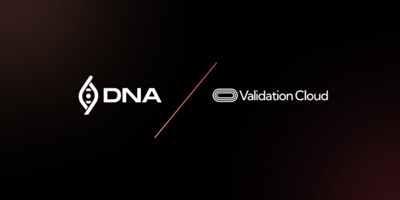This press release was originally distributed by DNA Fund on October 30, 2024. Partnership Brings...
The Future of Finance: An Overview of Institutional Staking
In this blog we explore institutional staking, highlighting its role in leveraging digital assets for returns and securing blockchain networks. It dives into the benefits, challenges, and emerging trends that shape institutional staking, offering insights into why it represents a cutting-edge investment strategy for the future of finance.
With the growing interest in staking and digital assets, institutional investors are increasingly looking towards more sophisticated methods of earning returns on their crypto holdings. On Proof-of-Stake (PoS) blockchains, staking allows for a holder of digital assets to participate in the consensus mechanism of the blockchain network to secure the network’s operations in exchange for token rewards and transaction fees. For institutional stakers, there is a distinct set of considerations and requirements, setting it apart from the experience of individual investors. This blog provides an overview to understand institutional staking, including its benefits, challenges, and future outlook.
Understanding Institutional Staking
Staking is the process of locking up assets to support the security and functionality of a PoS blockchain. When institutions engage in staking, they act as “Validators,” playing a crucial role in transaction validation on the blockchain. Institutional investors can generate earnings from their cryptocurrency assets by contributing to the maintenance and security of the blockchain. These contributions include mining new blocks and validating transactions on the blockchain.
Unlike traditional financial earnings, such as interest in a high-yield savings account, which may rely on external risks to your funds, staking empowers investors to retain ownership of their assets while actively creating additional value in the form of rewards. Staking rewards come in two forms: transaction fees and the issuance of new tokens by the network. Validators receive a portion of the transaction fees for the transactions they validate, and in addition, they are compensated with newly minted tokens by the network. For any institution to participate in transaction validation on Ethereum, for example, validators must stake a minimum of 32 ETH to begin validating transactions.
Benefits of Institutional Staking
The benefits of Proof-of-Stake will likely accelerate the institutional adoption of cryptocurrency and other digital assets. Staking rewards provide not only a new method for growing wealth but also opportunities for new institutional products. Staking lays a solid groundwork for institutional engagement with digital assets, providing several benefits:
- Steady Returns: It provides a yield on holdings, an attractive proposition for funds that seek consistent earnings.
- Enhanced Security: By participating in network security, institutions can contribute to the stability and resilience of the blockchain ecosystems in which they invest.
- Shaping the Future of Finance: Staking allows institutions to actively participate in the crypto market beyond trading, contributing to the governance and direction of blockchain projects.
Challenges of Institutional Staking
While the benefits of institutional staking in the PoS blockchain ecosystems are clear, there are challenges that need to be addressed to facilitate broader adoption among institutions. One of the primary hurdles is the complexity of the staking process itself and the regulatory environment surrounding digital assets.
- Education: The process of staking can be daunting for traditional financial institutions. This complexity arises from the technical nature of blockchain technology and the strategies required for effective staking, such as selecting validators, selecting the right provider, managing staking rewards, and understanding the risks involved.
- Regulations: Another challenge is the regulatory uncertainty that surrounds digital assets and staking. Regulations can vary widely by jurisdiction, and in many cases, the regulatory framework for staking is still in development. It's important to choose a staking provider that understands changing regulations and adheres to regulations and compliance standards.
- Compliance: Compliance is an opportunity to establish trust and legitimacy in institutional staking. By proactively adopting compliance measures, such as SOC 2 compliance, institutions can demonstrate their commitment to responsible participation in the digital asset space. Compliance includes implementing robust risk management practices, ensuring transparency in staking operations, and adhering to the highest standards of security and governance.
Staking providers like Validation Cloud lead by example, achieving SOC 2 compliance early on to help set the stage for wider adoption of institutional staking. SOC 2 compliant providers like Validation Cloud demonstrate that it is possible to participate in the growth of the blockchain ecosystem in a way that is both beneficial and responsible.
Future Trends in Institutional Staking
Looking forward, the landscape of institutional staking is poised for significant growth, driven by continuous improvements in blockchain technology and a clearer regulatory framework. Experts predict an increase in institutional adoption of Ether from a potential Ether spot ETF in 2024. This development is expected to bolster institutional adoption and the potential demand for staking-as-a-service providers. Additionally, the emergence of cross-chain staking mechanisms and the integration of staking in decentralized finance (DeFi) protocols are expected to provide new opportunities for institutional investors. As blockchain networks evolve towards more energy-efficient and scalable solutions, institutional staking is likely to become a cornerstone of digital asset management strategies, offering financial returns, network participation, and support for the underlying blockchain infrastructure.
Validation Cloud: Institutional Staking Tailored for Success
Staking services provided by an accredited third party like Validation Cloud allow institutional token holders to provide their staked tokens to a validator and passively earn yield on their crypto holdings with greater peace of mind and less effort than setting up their own validators.
Validation Cloud’s platform is purpose-built for institutional staking, offering a non-custodial solution that combines on-demand deployment with automated rewards management. This allows for seamless integration into existing asset management strategies without the need for constant manual oversight.
About Validation Cloud
Validation Cloud is a Web3 data streaming and infrastructure company that connects organizations into Web3 through a fast, scalable, and intelligent platform. Headquartered in Zug, Switzerland, Validation Cloud offers highly performant and customizable products in staking, node, and data-as-a-service. Learn more at validationcloud.io| LinkedIn | X | Blog




